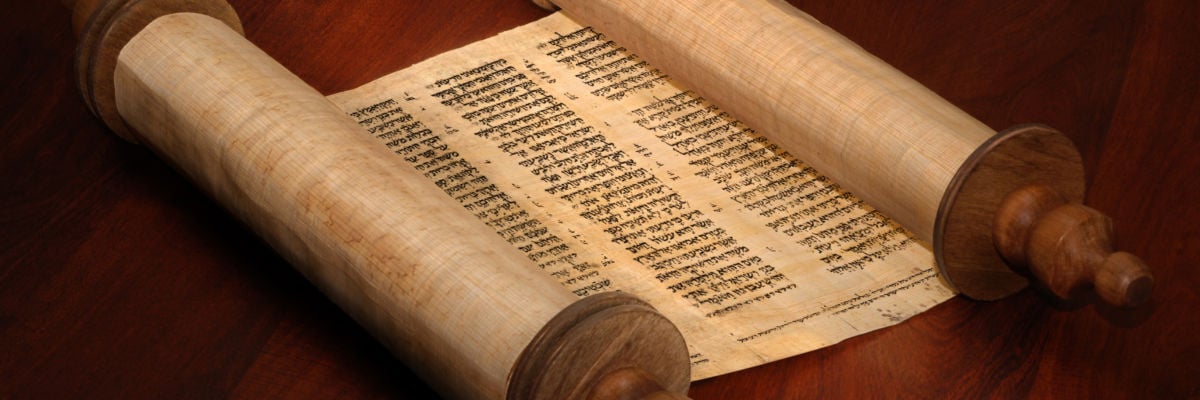
A Jewish convert asks whether Jewish converts must still follow the Mosaic Law or if baptism supersedes ancient traditions. Understand the role of circumcision in the Old Covenant and how it’s fulfilled in the New Covenant. Joe Heschmeyer give the Catholic Answer.
Transcript:
Oh, I’m a Jewish person who has been convinced that Catholic Church is a continuation of the faith of what my people were supposed to do all along. But I do have a question. I watched your video that you did a few months back about the relationship between the Jewish people and the Catholic Church and things like that. And I was wondering, I understand that the Judaism thing that you don’t have to become Jewish to become Christian or to become a Catholic, but I was wondering what does that mean for Jewish people who are already Jewish and are wanting to join the church? Does that mean that they no longer keep things that they were specifically commanded, via Abraham’s lineage in terms of circumcision and things like that? I understand that Gentiles don’t have to abide by those, but Jews who are already Jews, do they continue that as well as everything the church commands?
That’s a really good question. I say Thomas Aquinas distinguishes between three types of laws when we’re talking about the Mosaic law. You have some things that are expressions of the moral law. So for instance, thou shall not kill. Those are eternal truths that are recorded. Those of course continue. Second, you have some things that are aspects of the law of the kingdom of Israel. And so you will often see those things not being practiced even by Jews in Jesus’s day. We don’t find people, well, say today, you don’t find people stoning adulteresses because that was a particular law, not an eternal law and is understood in that way by Jews and Gentiles alike.
And laws of that kind are something where they’re national laws. And so a nation can look to the laws of another nation and forming its own laws, but is not bound by the laws of another nation. But then the third category, which are the kind of thing, circumcision, the kosher laws, those sorts of things. Our understanding as Christians is that these were a way of preparing the Jewish people for the Messiah.
And so once the Messiah is there, they’ve been fulfilled. They weren’t bad, they were good, but now they’ve been fulfilled. And so Jews and Gentiles alike are no longer bound by circumcision and the kosher laws or any of these things because they had an important role in salvation history. They weren’t a mistake, God clearly intends them. But they were a way of preserving the Jewish people as a distinct people because they were the ones bearing divine revelation and ultimately bringing the Messiah into the world. But it was not meant to be just in perpetuity that you would have to keep kosher and circumcised and everything else. So there are aspects of Jewish culture, which, in the same way that if you’re Irish or Nigerian or fill in the blank, you may have cultural practices that you wanna preserve and hold on to, which is great. That’s fine. As long as they’re not incompatible with Christianity, then by all means preserve the elements of culture. But you’re not required to keep the Mosaic law. You’re not required to circumcise.
None of those things are necessary
as members of the new covenant, Jewish or Gentile alike.
Yes, that’s my question. I mean, I understand the whole,
the whole system is not followed the whole dispensationalist attitude and things like that. And that’s fine, I understand that. And I also understand the Mosaic law kind of being not superseded but fulfilled. But I saw that considering the one covenant that doesn’t, that may be slightly different to the Abrahamic one. It’s different than the covenant with Moses specifically. And I was wondering, you know, that specifically would that pass away as well? And because I do also remember reading that even once after Pentecost, many of the apostles and followers of our Lord, they went back to Temple and not just to the Church but also to workers. Yeah, that’s right. So I was wondering how that squares.
Yeah, because the things happening in Jewish worship were all good and true.
We would say that they were incomplete in the sense that Christ isn’t being proclaimed as having come. But if you imagine, you know, if you went into a Jewish temple liturgy, five years before the birth of Jesus, all of the stuff happening there is what God’s intending to have happen as long as the worship is being done properly.
That’s not gonna be true of any other group’s worship.
You know, that wouldn’t be true of the pagans down the block. And so this is divinely revealed. And so even after the time of Christ, you do have this early Christian practice recorded in the book of Acts where they would go to pray in the temple, which is a place of common prayer, and then they would go to celebrate the breaking of the bread, the early mass, on the next day on Sunday. And so you have this practice of recognizing and preserving all of these things which are good. And so even though the temple’s not standing, I think you’ll find something and somewhat consonant with that. So if you’re familiar with what’s called the liturgy of the hours, there is in Catholicism morning, midday, evening prayer, night prayer, and then what’s called the office of readings, which is a spiritual readings. But it’s very much centered around praying the Psalms at set times. And historically it’s every three hours, but this is coming straight from Judaism and straight from the way worship and prayer would happen in the temple. And so even though we’re not in Jerusalem, and even though the temple is not standing, elements of what the apostles would have been praying there at those set hours of the day are being preserved and continue to be prayed by Catholics today. So we want to preserve and embrace that. We don’t wanna just throw out the Old Testament say, and say, “Oh, that was then, this is now.” No, no, it forms a really important part of our worship and our prayer because we have this recognition of it being fulfilled but not superseded.
So in all of those things, all of that is preserved.
Nevertheless, specifically with circumcision, the physical act of circumcision has given way to baptism. And St. Paul makes this comparison pretty explicitly that circumcision was a way of bringing you into the Old Covenant. And the way you’re brought into the New Covenant is through baptism. And so it serves as a kind of spiritual circumcision.
And I think that way makes sense in terms of even the context of circumcision, like why circumcision existed in the beginning. So if you remember, God’s promise to Abraham is that he’ll become the father of many nations. And Abraham’s getting older and older and doesn’t have any children. And so finally, he and Sarah conspire to take matters into their own hands because they decide the problem is her because she’s too old. And so Abraham has a child with Hagar. And so circumcision is in one way sort of a punishment because you’ll notice it happens right after the incident with Hagar where trying by the deeds of the flesh to achieve the promises of God, God rebukes Abraham and there’s now a physical reminder of reliance upon God rather than upon one’s own virility.
And so in that sense, all of that is pointing towards the priority of grace and faith over mere unaided human action. We didn’t say human action is bad, right? But it’s going to be the child of promise. It’s going to be Isaac, not the child of human effort with Ishmael. And in fact, if you go through the Old Testament, you’ll see the sheer number of times God chooses the child who isn’t the first born in a radical way. So think about Jacob and Esau, think about Joseph who’s number 11 of 12, think about David who’s number seven of seven. And the point there is all of the things we might imagine by just we’re gonna do things the right way and we’ve got the law with primogenetry and the first born has a special status. All of that has to give way to this divine action in grace. So God will choose who he chooses in the way that he’s gonna choose it. And we respond to that. And so if we look at it kind of in that juxtaposition, then hopefully it’s clear why baptism of bringing the family of God together in the way God wants is going to fulfill what is begun through circumcision.
Hey, thanks for watching. If you liked this Catholic Answer, be sure to like, subscribe and check out our live streams Monday through Friday, 3 to 5 p.m. Pacific, or find the episode after on YouTube, your favorite podcast platform or our Catholic Answers app.



